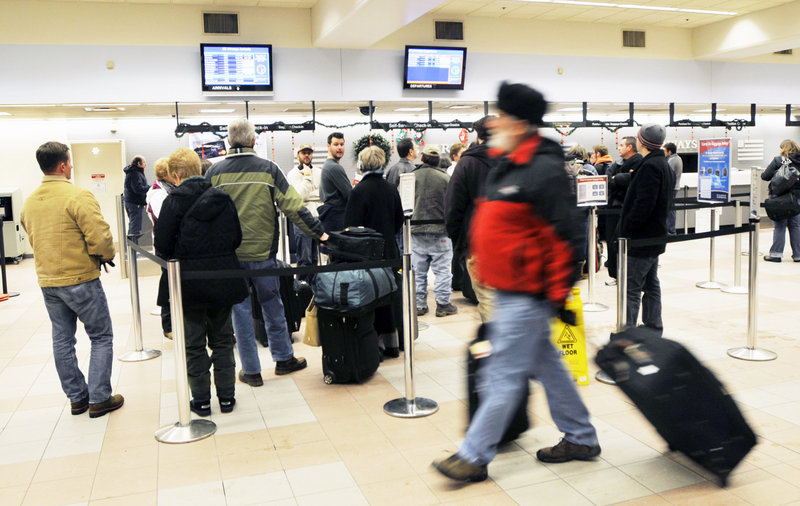This week’s blizzard was the first to test new federal regulations designed to protect passengers from unnecessary inconvenience during weather emergencies.
The final verdict on the new rules is not in, but the preliminary evidence suggests that we’ve traded one form of inconvenience for another.
Because airlines now face fines of up to $27,500 for every passenger kept on a tarmac for more than three hours, flights that might have made an attempt to take off in the past are now canceled.
So now, instead of sitting through repeated de-icing and refueling wondering whether the plane is ever going to take off, the traveler knows and is forced to make other plans.
But as the events of the last week show, the price for that certainty is far-ranging disruptions that led to canceled flights originating from airports that never saw a single flake of snow.
Adding to the confusion are industry practices that make it nearly impossible to find an empty seat on an airplane when the weather improves and it’s time to resume the trip.
Airlines run fewer flights, and planes are generally full. When a flight gets canceled, that means there is a full plane of passengers looking to get to the same destination on flights that are already nearly full.
Still, waiting for the next flight from home or a nearby hotel is better than sleeping at an airport or sitting for hours on an airplane, waiting for a take-off that never comes.
If there is something that could be improved, it appears to be communication between the airlines and their customers.
In an era in which information travels around the world in the blink of an eye, it is frustrating for travelers to have to spend hours on hold waiting to reach a customer service representative.
Clearly, airlines can predict that this type of mass cancellation event will happen even if they can’t predict when. Airlines should be able to contract for computer access and part- time customer service representatives, who could be brought online in an emergency.
Traveling in winter always comes with a level of uncertainty, but travelers deserve to get as much information as possible.
Send questions/comments to the editors.



Comments are no longer available on this story